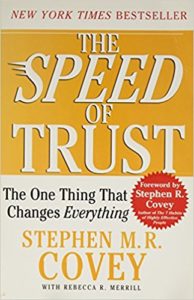Distributed trust is going to change our world, and at such a speed we cannot even imagine.
As regular readers know, I’m obsessed with the idea that #OpenLeadership is a radical approach that can make a massive difference for humanity and our planet in this UNTHINKABLE age that we live in.
Change is SO rapid that we cannot have the answers, yet we aren’t yet acting in recognition of this.
Recently I wrote a post “What a fool believes about Bitcoin“. Yes, it primarily focussed on the bitcoin bubble and psychology of the “greater fool theory, but I also said :
“I do actually believe that Blockchain in 2017 is at just such a moment as Netscape and the “WWW” was in 1994. Distributed trust is going to change our world, and at such a speed we cannot even imagine.“
Let me run you through a line of thinking.
First though, some history for fun :
- In 1876 the first telephone exchange was created, connecting users for calls with a dedicated connection over (gasp!) wires from point to point.
- In 1991 the internet began when the World Wide Web launched. Information was shared over “IP”, with packets of data going across the network
- in 1994 Netscape appeared and all of a sudden we got the point of the internet.
- In 1999, Napster explodes with peer to peer sharing of music files. Amusingly, people trust each other to share data across thousands of computers in order to pirate music illegally
- In 2003, Skype takes technology for peer to peer data sharing to another level by sharing voice and video for calls. Again, the driver was for users to save money over the cost of conventional telephony
- In 2009 Whatsapp begins. Within a few short years, the “upstarts” of the mobile telephony world, having “disrupted” conventional “fixed line” phone companies to the edge of extinction, now find themselves in the business of selling data for WhatsApp messages and calls, as who uses texts or phone call anymore?
Wow, speedy, huh? What’s next? No idea.. and literally we can’t think of what it could be, we can only guess. UNTHINKABLE!
Now, what about this blockchain stuff then?
Let’s talk about money and central banks for a minute then, shall we.
No, stay with me, I promise I won’t get into numbers.
I do, however, recommend reading some history of money, and I’d start with “Ascent of Money” by Niall Ferguson to get some understanding of how money works in our world and WHY it works the way it does.
In short, money is about control and power. Lift that up a level and power is vested in the private sector via money, and politically via money through central banks and national currencies.
Banks are therefore hugely powerful in our world, as we saw in stark relief when they seemed immune to so market forces (‘too big to fail’ etc) and even national and international laws.
We need banks, you see? Or do we?
Back to Blockchain.
Fundamentally Blockchain is in the vanguard of taking the “Distributed Trust” that we see in trusting systems over strangers (eg Uber, AirBnB etc) and taking it into all forms of financial transaction, contracting, basically ultimately any arrangement involving the transfer of value of any size between any parties anywhere.
“Hmm..sounds a lot simpler and less expensive than money and banks.”
Yup.
“But aren’t people like Paypal, Apple Pay, even credit cards already doing this?”
No, in essence, they are still a clearinghouse, you need to trust Paypal to send money through PayPal.
You see, in truly distributed trust, trust is universal, no one entity holds the key.
I am NOT any kind of expert on blockchain, I am instead looking at macro trends. What I am seeing goes like this, and at unthinkable speed :
- Distributed trust is moving out of infancy (around tech-driven commerce)
- Blockchain is in the vanguard of moving distributed trust into cross border financial service at all levels (eg right down to microtransactions and e-wallets for the unbanked)
- Once we see that we can exchange value without using banks more quickly, less expensively, and with more trust, the rate of adoption will be beyond rapid.
- I can’t give you timeframes, but imagine :
- 10 years from now – Conventional banks are a distant memory (as of 2017, the average length of time we remain customers of a bank in the western world is in excess of 20 years…talk about sticky !)
- 10 more years – no more central banks or national currencies – what would we need them for?
- 10 more years – taxation is literally impossible and unthinkable, new solutions are found
- 10 more years – we look back and truly can’t understand or remember why we even used to have the concept of nation-states? nationality? passports?
Yes, Distributed Trust IS that big!
Oh, and remove the technology and focus on human behaviour, over 10 years ago Master Stephen Covey was ahead of us :

